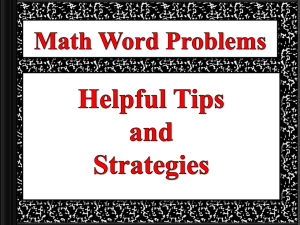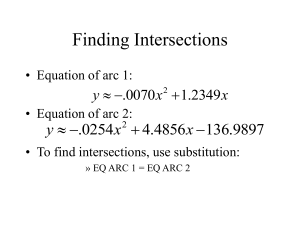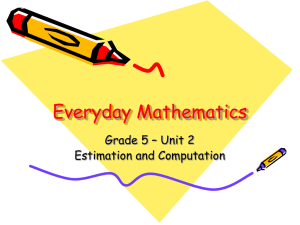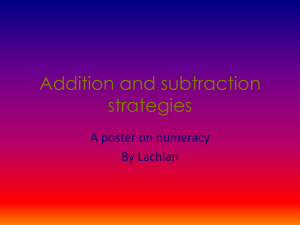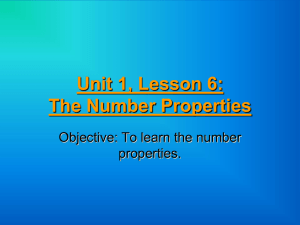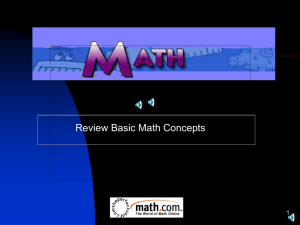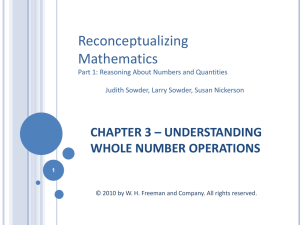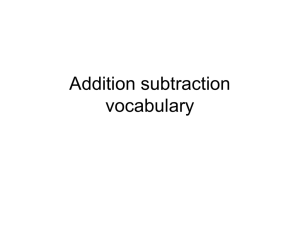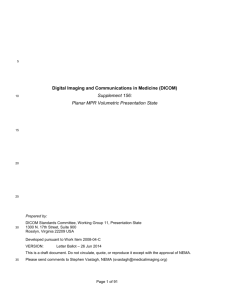PowerPoints_files/P&M ProbSlv
advertisement
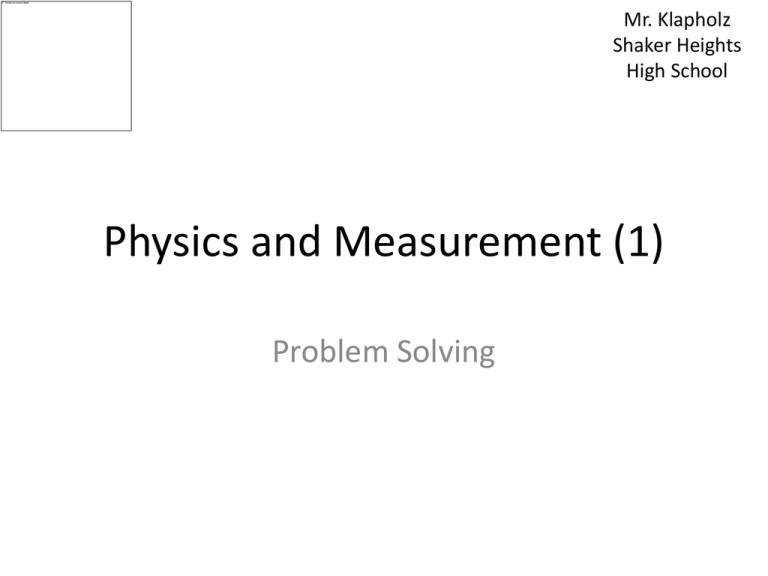
Mr. Klapholz
Shaker Heights
High School
Physics and Measurement (1)
Problem Solving
How many Figures are Significant?
•
•
•
•
•
•
•
12.3
800
801
8.00 x 102
800.0
0.007
0.0070
How many Figures are Significant?
•
•
•
•
•
•
•
12.3 {3 significant figures}
800
801
8.00 x 102
800.0
0.007
0.0070
How many Figures are Significant?
•
•
•
•
•
•
•
12.3 {3 significant figures}
800 {1 significant figure}
801
8.00 x 102
800.0
0.007
0.0070
How many Figures are Significant?
•
•
•
•
•
•
•
12.3 {3 significant figures}
800 {1 significant figure}
801 {3 significant figures}
8.00 x 102
800.0
0.007
0.0070
How many Figures are Significant?
•
•
•
•
•
•
•
12.3 {3 significant figures}
800 {1 significant figure}
801 {3 significant figures}
8.00 x 102 {3 significant figures}
800.0
0.007
0.0070
How many Figures are Significant?
•
•
•
•
•
•
•
12.3 {3 significant figures}
800 {1 significant figure}
801 {3 significant figures}
8.00 x 102 {3 significant figures}
800.0 {4 significant figures}
0.007
0.0070
How many Figures are Significant?
•
•
•
•
•
•
•
12.3 {3 significant figures}
800 {1 significant figure}
801 {3 significant figures}
8.00 x 102 {3 significant figures}
800.0 {4 significant figures}
0.007 {1 significant figure}
0.0070
How many Figures are Significant?
•
•
•
•
•
•
•
12.3 {3 significant figures}
800 {1 significant figure}
801 {3 significant figures}
8.00 x 102 {3 significant figures}
800.0 {4 significant figures}
0.007 {1 significant figure}
0.0070 {2 significant figures}
Significant Figures after a Calculation
• 12.3 + 4.567 + 0.8912 = ?
• Without thinking about significant figures, the
sum is 17.7582
• But we are confident only know about the 0.#
decimal place, so the result is 17.8
• For addition or subtraction, keep your eye on
which digits are significant.
Significant Figures after a Calculation
• 12.3 x 4.567 = ?
• Without thinking about significant figures, the
product is 56.1741
• But we are confident only of 3 significant
digits, so the result is 56.2
• For multiplication and division, keep your eye
on how many digits are significant.
Propagation of Error
Addition, Subtraction
• If a string is so long that it takes two rulers to
measure it, then its length could be 30.0 ± 0.1
cm PLUS 20.0 ± 0.1 cm. So the length is 50 ± ?
cm.
• For addition (or subtraction) just add the
absolute errors. 0.1 cm + 0.1 cm = 0.2 cm.
• So the string is 50 ± 0.2 cm long.
Propagation of Errors
(Multiplication and Division)
• Speed = Distance ÷ Time. If you travel 90.0 ± 0.2
meters in 10.0 ± 0.3 seconds, then your speed =
9.00 ± ? m s-1.
• For multiplication (or division) add the fractional
errors and then use the result to find the error of
the answer.
• 0.2 / 90.0 = 0.0022
0.3 / 10.0 = 0.03
• 0.0022 + 0.03 = 0.032
• 0.032 x 9.00 = 0.29
• The speed is 9.00 ± 0.3 m s-1.
Propagation of Errors
(The ‘quick and dirty’ method that works for everything)
• If A = 9.0 ± 0.2, and B = 1.4 ± 0.1, then AB = ?
• AB ≈ 9.01.4 ≈ 21.7 ± ?
• The greatest it could be is: 9.21.5 = 27.9 (that’s
a difference of 6.2).
• The least it could be is: 8.81.3 = 16.9 (that’s a
difference of 3.8).
• Average: (6.2 + 3.8) ÷ 2 = 5
• AB = 22 ± 5
Additional PPTs on Vectors are
available under separate titles.
Tonight’s HW:
Go through the Physics and Measurement
section in your textbook and scrutinize
the “Example Questions” and solutions.
Bring in your questions to tomorrow’s
class.
